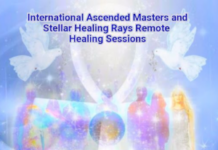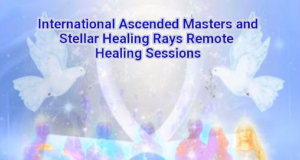(it’s not what you think)
Can’t figure out why you’re in such a funk? The answer might surprise you
by: E.B. Johnson
While our Instagram profile might be stacked like a highlight reel, many of us are living and operating in completely miserable states.
Life is full of ups and downs and — though we claim we want to be happy — we often find ourselves chasing the things and the lifestyles that bring us down. We invite misery into our lives and then suffer in confused silence as everything tumbles down around us. This always happens to you. This only ever happens to you. Life hates you. Work hates you. Everything hates you.
Why does this happen? Why do we let ourselves get so stuck and why do we then seem to do so much hard work to keep ourselves unhappy?
The answer might surprise you.
Why Are We All so Miserable?
We as a species like to think that misery is the result of external consequences, but much of the misery in our lives comes from…you guessed it…ourselves.
Misery gets us attention.
We cling to misery because it’s comfortable and it’s a quick fix. When things are going bad (or even when they’re not) wallowing in misery can be a comfortable feeling.
Misery has a way of making people feel sorry for us, and that attention can feel insanely good if you’re struggling or just bored. We get a feeling of power when we see our emotional states impact other people, and this power can become addictive in a number of ways.
It numbs us to an uncomfortable reality.
Misery too has a way of numbing us to the reality of our day-to-day. When we’re miserable, we have no hope and when that happens we can’t be disappointed or disillusioned. Things don’t hurt as bad if we already expect them to suck.
This might seem like a clever way to approach things, but it’s not. It’s toxic and it leads to more problems for you in the long run.
Misery makes us feel important.
Being miserable and staying miserable is lazy, and it warps your world view. While you might feel wise or worldly because of your suffering, you’re actually self-sabotaging; projecting yourself as a burdened, tragic and shallow person in a world that already has more than enough of that going on.
Staying miserable takes a little effort and a lot of skill. While not every miserable person is the same, they all engage in a honed set of skills that go a long way in keeping them stuck, sad and unhappy.
These are the 14 habitual forms of self-sabotage that every miserable person loves to engage in.If you’re feeling down-in-the dumps, chances are you’re engaging in one of these habits (or two). Note them and learn them well; then use them to unlock the secret to your own happiness.
You don’t have to be miserable forever, but no one can make you feel better but you.
The 14 Habits of Truly Miserable People
1. A critical eye and an even more critical tongue.
If you’ve ever spent a few minutes with a truly miserable person, then you’ll know how critical they can be.
Unhappy people have an endless list of the things they don’t like and (usually) they don’t care if you want to hear about it or not. They vomit negativity wherever they go and there’s nothing and no one that seems to be able to please them.
They hate the movies that everyone loves. They hate the way their co-worker does anything. There’s no making them happy and spending a few minutes alone with them feels like being dunked into a tank of toxic waste.
Being extremely critical is a deflection and coping mechanism — and a piss-poor one at that.
When someone is very critical, it is often a sign that things aren’t going well in their own lives. Projecting our negative experiences onto the people and things around us has a nice way of making us feel better (in the most superficial of ways), but it also has an uncanny way of isolating us and making us even more unhappy.
If things aren’t going well at work, it might feel nice to criticize that brown-noser in the cubicle next door, but it won’t make your working environment any easier to function in. Lecturing your girlfriend on her love-life might be tempting when you have nothing going on in your own, but it won’t make your friendship stronger.
Being critical of everything — and negative about the rest — is an inefficient way to operate in a world where relationships are critical.
Consider yourself and the way you currently interact with the world around you. Are you more critical than you are understanding? It might be a sign that it’s time to make some changes.
2. Obsession with economic loss.
It’s not a secret that we’re living in some rough economic times. Across the country (and across the world) people are afraid of losing their jobs and their savings — and they’re justified. These are scary times for everyone and things are more unsure than ever.
There’s a fine line between concern and obsession, though.
Miserable people are often obsessed with financial loss, be that perceived or factual. They concentrate on this fear, make it a priority in their life and moan continuously about how broke they are — even if they aren’t that broke.
Obsessing about how hard things are going for you financially is just like any other facet of misery. It will get you some attention, but it will also cripple you in some seriously critical ways.
When you’re possessed by the fear of going broke, you get stuck in a job that you hate. That possession then crosses the line into obsession as you start to focus on nothing but money and you greed and your self-centeredness grow.
Your moaning and woe-is-me will also only go to alienate you from the people that matter the most. Your friends and your family will get sick of hearing how hard things are (especially if they aren’t) and when that happens you’re far more likely to become anxious and depressed.
If this sounds like you, think about transitioning to a different mindset. It’s not easy — and it takes some serious commitment — but it’s possible with a little effort.
Instead of obsessing over what could go wrong, obsess over what you could do right. Rather than waiting for the sky to come crashing down, transition to a solutions-focused type of thinking and figure out what you can do to control your finances to create the financial future you want.
3. Practicing intentional boredom.
Do you have one of those friends that just never seems to be happy about anything? How many times have you heard that person complain about how “bored they are” or how “life is just not exciting”?
Miserable people are often stuck in a rut and that stasis can leave them with perceived feelings of boredom or loss of excitement. Irritated by this feeling that not enough is going on in their lives, they often make some bad choices that can have a serious impact on not only their lives, but the lives of their families and friends.
When you feel bored or unfulfilled you become tempted to go looking for excitement. People who feel stuck commonly find themselves engaged in affairs, extreme overspending or worse, alienating themselves from the people and things that matter at every twist and turn of the way.
Boredom begets boredom. If you project an aura of “nothing is interesting” your friends will start to avoid you and your social calendar will dry up.
4. Identifying negatively.
Life is rough and there are some real and concrete aspects of it that can cause us to become unhappy. For example, you might be suffering from clinical depression. That is a genuine reason to feel unhappy that is far beyond anything you can control.
However, that depression doesn’t need to become your identity.
Miserable people take negative facets of their lives or their experiences and make it their entire identity. If they suffer from social anxiety, they become the Anxious Person. If they are a person with a genuine phobia, they become the Phobia Person.
It’s a lot easier to make the bad parts of our lives the main focus, rather than the good. When things go wrong we notice every detail, when things go right…well, we seem to be able to forget those things much easier.
We put ourselves in a box when we insist on identifying ourselves by our weaknesses.
When we insist on focusing all of our energies on what’s wrong, rather than what’s right, we stop going to new places; we stop experiencing new things. We shut ourselves off to the all the growth and beauty and possibility of the world and for what? Isolation and more unhappiness?
Not a great payoff, if you ask me.
Rather than focusing on the bad (no matter how much of our time and space the bad things take up) we have to learn to focus on the good things that make us powerful. Rather than being the Depressed Person, be the Person that Plays Violin. Rather than being the Anxious Person, be the Running Person or the Painting Person.
We are so much more than our illnesses, so much more than our weaknesses. The problem is pulling our shoulders back and claiming that power. Misery is a heavy yoke to throw.
5. Always expecting the worst of intentions.
Have you ever heard a Debbie Downer talk about how great the intentions of their partner, spouse or friends were? Probably not.
Miserable people always expect the worst of people and they do their best to make sure the people around them feel the same.
Misery begets misery and miserable people love nothing more than to assume that everyone around them is just as miserable. No matter how the people around them behave or what their motivations are, they will always expect worst of those around them. When they don’t get it, they’re often more annoyed than if they had gotten the expected disappointment in the first place!
If someone is late to meet you for dinner, don’t remind yourself of all the other times they were late. Consider instead that there might be a lot going on in their lives, and that something unpleasant might genuinely have kept them up.
If your expectations of the people around you are always bending toward the bad, try using a little understanding instead.
When you expect the worst, you’ll get the worst and you’ll end up alone too. You can’t make connections with people you don’t trust, and you can’t trust people you constantly expect the worst from. Have a little faith and try giving people the benefit of the doubt. The results might surprise you.
6. Picking fights for no reason.
Relationships seems to come and go for miserable people and picking unnecessary fights is often the reason for this.
When we’re unhappy we often feel out of control and conflict is one of the ways we attempt gain control of our lives again. Confronting our partners with erroneous accusations or making up drama where there is none is a way for us to feel powerful and it’s a way to manipulate the emotions of the people around us.
Rather than making waves where there are none, it’s better to address the real reasons we feel a need for conflict or confrontation. Are we feeling out of control of some aspect of our professional lives? Is there some need that isn’t getting fulfilled.
Taking time to consider our emotions and the reason we feel the desire for conflict can often yield surprising results. You might not be as mad as you think you are. You might not be mad for the reasons you think you are.
7. It’s all about the personal gain.
Being unhappy for a long time has a way of eroding our natural empathy. If we’re unhappy, we’re a lot less likely to donate when that charity comes knocking; likewise, we’re not likely to extend a helping hand to the people in our personal or professional circles.
Misery makes us selfish and miserable people are focused on one thing and one thing only: their own personal gain.
It’s understandable.
Unhappiness can feel like drowning. You struggle and struggle, and when you realize that no one is coming to save you, you start to feel justified in leaving them stranded when they need help too.
Misery erodes our natural empathy and isolates us from the aspects of our humanity which make us special. We start to see only ourselves and our needs and that can make us begin to devalue the people and relationships that make up the most rewarding parts of our lives.
It’s important to remember that we’re all human and we’re all struggling with one issue or another. Practice compassion and reframe your thoughts from “me” to “we” and you’ll find yourself feeling more fulfilled and at peace with the way things are.
8. A thankless state of mind.
Research shows that gratitude makes us happier, but miserable people don’t care. They’re thankless for everything in their lives, no matter how good they might actually have it.
Being grateful encourages happiness and resilience to stress, but it takes more work than simply seeing the bad in everything. Sometimes, it takes digging to find the silver lining in a situation. Miserable people are incapable of doing this digging, and have no interest in putting the effort in to make their lives a little more happy.
Instead of practicing a state of thanklessness, try a state of thankfulness.
Take some time each day to make a list of the things that you’re grateful for. If you can’t think of anything, it’s time to make some radical changes to your way of life and your way of thinking.
9. Playing the blame game.
There is no deflection a miserable person loves more than playing the blame game. An unhappy person will blame anyone and everyone for their misery: their parents, their friends, their spouse, their children, their boss. There’s no one a miserable person won’t put the guilt on if it helps them feel better about their miserable state of mind.
Blaming other for our shortcomings and failures is so much easier than stepping up and taking responsibility for the mess in our lives.
For eons, we have repeated to ourselves (as a species) this mantra that we’re superior to everything in the cosmos. From the time we take our first breath on this earth, we’re led to believe that we are special, infallible masters of our universe; incapable of making a mistake, incapable of having flaws — unless, of course those flaws are in someone else.
Society tells us this. Our religions tell us this. Everything in the human world reinforces this idea that we are some kind of god-like being, completely above reproach or misstep.
The problem with this, of course, is that it just isn’t true. We all make mistakes. We all make screw up.
Miserable people will play the blame game to the last, even when their back is against the wall and it is clear that there is no one to blame for the misery but them. Blaming others lets them take the credit for the bad things and allows us to keep the credit for the good things. It makes us feel better about what’s going on and it makes us feel like we’re still in control, even if we’re not.
Instead of extending the blame to a second-grade teacher who once criticized your penmanship, try stepping up and being accountable for the decisions that led to your unhappiness.
Only when you start to take responsibility for your actions can you identify the causes that led to the consequences. You can’t learn if you aren’t accountable.
10. Controlling friends, family and loved ones.
Is it any surprise that we’re at our most miserable when our lives are spinning out of our control? Feeling like you have no say in the things going on in your life isn’t nice and it can drive us into some really irrational behavior.
Chief among these is the desire to exert control over our loved ones.
Controlling others makes us feel like we’re in control of ourselves, but it only isolates us and makes us more vulnerable to depression, anxiety and a whole host of other negative behaviors.
Miserable people often find themselves romantically involved with partners that have major defects. These defects create a sense of drama in stagnation but also help the miserable person feel like they have a project that they can control and “fix”, distracting them from their own unending misery.
The problem is that you can never, never truly control another living human being. You can try all day to fix them and transform them into whatever picture of love you want them to be, but you’ll only end up pushing them away in the end.
Remember: If you can’t control your internal environment you surely cannot control the external environment of another person. Let go of that need for control. It’s an illusion.
11. Glorifying any time but the present.
So many miserable people are miserable because they focus obsessively on the glory of times that are either long gone or yet to come.
You’ll often hear unhappy people talk fondly of the past. Sometimes, it’s the only positive thing you’ll ever hear them say. They’ll speak grandly of how good things were back then and how much more fortunate everyone was. You might even hear them say how much more worthwhile life was when they were a child, or hear them moan about how everything goes downhill after a certain age.
Romanticizing the past makes us feel bad about the future, but you’ll see miserable people doing it with ease. Constantly.
We, as people, tend to assume that other eras were better than ours. Instead of realizing that life is a mixed bag, we focus of a self-designed “highlight reel” that makes us feel unsatisfied with the difficult place we find ourselves in now.
Not only is this way of thinking toxic, it’s pointless. You can’t go back in time, nor can you see the future. The only time is now and looking beyond that will fill your mind with nothing but misery-inducing what-if’s and should-have’s.
12. Rumination as a way of life.
Almost all truly unhappy people are guilty of making a pastime of overthinking.
People that cloaked in storm clouds have a hard time breaking out of their pessimistic views of life and spend far more time than they should analyzing every aspect of the world around them.
Miserable people miss a lot of the positive in their lives because they’re too busy focusing on everything wrong in the world, even if it has nothing to do with them. They’ll analyze their behavior, the behavior of others, the stars in the sky and the way the planets move. They’ll focus on themselves mostly, but they’ll focus on others too. To the miserable person, everything is a burden to be considered and the longer this goes on, the more horrible they become.
Instead of brooding on negative thoughts and negative feelings, it’s good to limit these thoughts and redirect them into more positive spaces and places.
When things go wrong, let the bad feelings in but give them a limited amount of time to occupy your brain. When time is up, ban those thoughts by distracting yourself with positive works like exercise, art or even charity work.
Brooding on the bad doesn’t make you a deep thinker despite what your sad brain would have you think.
13. Existing in a constant state of anxiety.
Optimism can be hard when you’re dealing with feelings of anxiety, but it’s key to generating positive outcomes in our lives. When we focus on the bad, we make ourselves feel bad and these thoughts then spiral into further degenerative emotions that will wreck your physical and mental wellbeing.
Miserable people love focusing on all the things that could go wrong and they love wallowing in the anxiety these feelings manifest.
Being superficially anxious can make you feel important or busy. It can garner you attention and help you to manipulate the feelings or impressions of the people around you. The problem with this, though, is that it isn’t real and it certainly isn’t an efficient way to operate.
When we focus on our anxieties, we amplify our anxieties. Amplifying these negative emotions can force us to believe the worst about ourselves.
These thoughts convince of us everything from the fact that our marriages will fail, to the outrageous belief that our children will never love us. Instead of looking forward with optimism, we start to think that our business endeavors will be fruitless.
Negative thinking of this nature turn us against ourselves and the people we depend on. It amplifies the negativity in our lives in manifests in alarming ways that leave us stuck in a perpetual cycle of anxiety.
14. Seeing life as pleasureless.
To anyone that has known the pain of depression (or anyone that has dealt with a feeling of hopelessness) you’ll know all too well how quickly the pleasure can get zapped from the things you love.
Feeling rotten can make life seem pleasureless. When we’re hopeless it’s hard to see the color for the grey, but it’s imperative to finding your way back to happiness again.
Miserable people refuse to see the joy in the small pleasures of life, and this is where they miss out on the true beauty that could set them free. Rather than enjoying good food, time with friends or a nice glass of wine, they focus on the things they can’t control and the things that make them feel negative.
When we forget how to see the silver lining in things we miss the bigger picture in the tapestry of life. While there’s always something hard ahead, there’s always something to be grateful for too. There’s always a reason to be happy.
Putting it all together…
Getting stuck in a rut can make things look grim. It takes an honest assessment of who we are and where we’re at to make sure we don’t make things worse.
Wallowing in our misery is to allow our weaknesses to define us. When we are overly critical, overly negative and refuse to see the good in people and situations, we push away the things that matter and isolate ourselves. It’s a downward spiral of negativity. Our negative feelings reinforce our negative beliefs, which reinforce our negative behaviors. As we tumble through this cycle we end up feeling more hopeless and unfulfilled as time wears on.
Take a step back. Analyze your life and the decisions that you have made that have led you here. What role have you played in where you are? What role can you play in the future?
Focus on the things you can control that will bring you closer to the future you have planned. Stop losing yourself in the details of things that don’t matter and focus on the here and now.
You can stay stuck in a rut or get on a path to a better tomorrow. The choice is yours, but you better make it fast. Life isn’t going to wait.
Source: https://medium.com
Disclaimer: We at Prepare for Change (PFC) bring you information that is not offered by the mainstream news, and therefore may seem controversial. The opinions, views, statements, and/or information we present are not necessarily promoted, endorsed, espoused, or agreed to by Prepare for Change, its leadership Council, members, those who work with PFC, or those who read its content. However, they are hopefully provocative. Please use discernment! Use logical thinking, your own intuition and your own connection with Source, Spirit and Natural Laws to help you determine what is true and what is not. By sharing information and seeding dialogue, it is our goal to raise consciousness and awareness of higher truths to free us from enslavement of the matrix in this material realm.
Español
 EN
EN FR
FR



























I recall back in the days of my youth that I was a low and common agrarian peasant working in the apple orchards of Okanogan County in north central Washington State. I lived with my cat in a series of peasant hovels and earned between $1.75 and $3.00 per hour. That was in 1970's money. Even though money was usually an interesting challenge and there were no unmarried women around who would take any interest in me at all, I was happy in general. I was in the great outdoors in a beautiful part of the world which was rich in fish and game. My employment allowed me to spend a great deal of time hiking in the Cascade Mountains, hunting, and fishing. It was just lucky how the work seasons juxtaposed with the times of the year and when the fishing and hunting was legal and good. The apple harvest ended about the time that the general hunting season opened. When the summer work ended, the snow had melted off the high trails to the high lakes.
if I had made money the purpose for mine existence, I would not have chosen that kind of life. However, the money and employment situation became so strained with inflation combined with the willful and treasonous refusal of the national government to control its southern border that I had to eventually depart that line of work and that geographical location. I was an innocent victim of a cruel and deliberate programme of population replacement. What followed was an evolution of bitterness and the trail of events and timeline trajectories as described in this article. Adding to my sense of bitterness and frustration was the institution of Political Correctness as the established religion of corporate America and American government at all levels down to the public school classroom. Just talking in real terms about what had happened to me and why would cause more rejection because I was describing historical realities that are forbidden to be acknowledged by the standards of that misbegotten false religion.
So, what to do now? I betimes still relieve tension by lashing out at the fools who vote wrong and the scum that they vote for and the traitors who facilitate population replacement, "covid" tyranny, and every other dastardly and Satanic globalist plot. However, I recognize that does not accomplish very much. It is sort of like kicking something when frustrated. What I am doing now is trying to see my challenges as small parts of a very much larger picture. For example, my life did not end when I joined the National Guard to augment mine agrarian income. It did not end when I eventually had to depart that location all together. My military career, though not altogether comfortable or rewarding, lasted for as long as it was needed and was on balance successful. In Montana where I moved to, even though the job situation was profoundly crappy, the hunting and fishing were excellent. The economic privation drove me into higher education resulting in a Legal Secretarial Certificate, a new career as a secretary, and a move to the Seattle area. Near Seattle, I met the woman who would become my wife. Our 30th wedding anniversary is in December of this year. We visited the Okanogan many times for us to fish or for me to hunt or fish. She is very old and feeble now and is severely addled by Alzheimer's disease. My hunting days had to stop as of 2013 because of her care requirements, but we still go out there to enjoy the scenery and I get some fish too in the spring.
Many of the people around me now are deluded leftwing fascists who imagine that I am some kind of a racist, a rightwing nut, or just crazy or something like that. They imagine too that the massive election fraud of 2020 did not happen and that Creepy Joe was a good choice as President and that the Donald is the devil. If I wanted to, I could tell them the hard truth of just what they are and where I think they should go. What purpose would be served? It would be like a grade four bully in school berating a smaller child in grade one for his ignorance. I should be thankful for my general education, even though some of it came from the school of hard knocks, and for all of my many blessings including the Prepare for Change newsletter. My cats never agreed with me on some issues, but I always loved him or her anyway.
I find happiness in creativity and creating, learning new things, satisfying my curiosity, the excitement of just how magical life is and all the unexpected things that occur; connecting to others loving and being loved, new buds, tiny birds, flowers, there is so much to be joyful about and then there are the things that test us that we must get under, over, or around, on our journey we call them obstacles or challenges all part of life's tapestry . Sometimes I am sad; overwhelmed; hungry; suffering but not for long because I decide to make my way out of it. I am not just a block of misery; never that; and I believe that to focus on misery is to create a miserable life. Be grateful for all the good things and soldier through the bad times we are not miserable we are in a lot of different states of mind at different times and that is okay; it is called the human condition and we are here to experience it all. I do not care about what they call normal I can only be true to myself and use the gifts that God gave me to map my way through this amazing journey called life with all it's wonders. Sending love to every one; keep the chin up and be kind to yourself; do things that make you happy and help each other get through in a positive way. Birds singing buds growing new babies all going on and too blind to see the wonders and the joy of life. That just will not do! Just choose to be happy you are the creator and director of your life; if you see nothing but misery stop it now and decide to change your course and your focus you must learn to take command of yourself and be responsible for yourself . Got it! Master all that and your life will be more joyful and interesting no matter what.
People are miserable because we Live in an Artificial World.
"They" are Hiding Creator Source/Life Source, the Sun, Moon & Stars, where we get our Energy from.
All those reasons for our misery are true however it's missing the ingredient that causes them all – which is so funny because it actually buys into the hatred towards humans on every level when really the cause is contrived. The cause is money and the mind it puts us into – a state of deficiency, always a state of deficiency. Deficiency is actually the opposite state of reality as reality is abundant – if you operate the right way! But in comes money born of debt, tied to everything and it puts us into a state of constant pursuit, like a greyhound chasing a wabbit around a ring. The reason it is missed by this author and so many others is because it is an addiction now and most cannot see their addiction. Not even this author. So let's put the cause where it belongs. It is not natural to live like this, with nothing available to us unless we prostitute ourselves to get it.
The missing ingredient that causes people to feel miserable all of the time? We can sum up many of those, I believe, denise ward. To you, it's money, a state of constant pursuit, an addiction. Isn't that a choice? All external existences offer us a choice, in how to perceive, experience, and deal with them.
What pain is to a person fully in resistance to it, is very different to a person at peace with the process of dying. Physical pain is a signal that I'm not present in that part of my body, and so.. it's a reminder to bring presence by means of healing. On all levels, mentally, emotionally, and ultimately physically.
This brings me in a straight line to the bottom line of our existence, once we're born in a physical body, feeling the pain of having to endure the restriction of physicality, of form, as a spiritual being.
At the same time, and I believe we're far from the awareness of it, collectively, we're born with a purpose, coming from a choice we've made on the other side. It's what I believe for myself to be true.
When that level of awareness and understanding is missing in our lives, misery around us, and within us is the reality we declare to be the only one, and in the absence of a purpose, of enthusiasm for a mission or a creative skill, all hope is lost. When we're unaware of our spiritual nature, our origin as divine beings, landing on planet Earth for a reason we've forgotten. Which parent discusses this subject with their child?
How many of us are aware of our true nature? Or begin to ask the question? Are you ready to find out? Something inside of us, a flame of not wanting to give up, an affinity within the heart for oneself, so that the love for others is genuine, creates confidence, I believe.
It's the initiative, that sparks the fire of exploration within, and in that choice, regardless of our mood, the fruit is hidden, as I see it. It starts with commitment. We've got a choice, always, to let our mood dictate our fate, or to allow the observation of our mood, to be used as a manual for knowledge of self, of truth, shaping our self-worth, our self-image, and the building up of our lives.
The absence of a drive and motive in one's life creates all sorts of negative emotions and negative self-images, such as fear, anxiety, anger at the world, sadness and fury. In the last couple of years, our trust in life, our taking life for granted, is put to the test enormously, isn't it? This sense of loss, grief, meaninglessness, of no direction, brings a person to despair, and when no self-determination is found by pulling oneself out of the quagmire of self-pity, and self-loathing, on one's own collar, it may bring a person to resistance to life itself, asking this question "How to be alive… why? For what?"
Answers that were floating around us, in the safety of a home, family, a career for life, security of food and water, are disappearing fast. And so, the answers need to be found within, and this may seem an impossibility to those living in despair. Isn't it why support and sharing are so welcome? Aren't we tested to show our mettle? Outgrowing our limitations, and realizing love? I'm enjoying 71 years of life in this lifetime, with many experiences, happy and hard times. There are no regrets.
The Force is strong in me! Everybody is a winner, don't let appearances fool you. 🤹♀️🍀🌞⭐
This is great, thank you! Main thing I'm realizing is that it's all negative thinking. Choosing to reject negative thoughts as they show up really really helps. The entire 'negative thought matrix' starts to crumble.
We cannot reject negative thoughts when our entire society is built on a money system based on deficiency. The result is correct but the cause has not been examined here, it's been overlooked. As it always is because deficiency is artificially created. It's really as simple as that. And because everyone is under the same convolutions, it seems like it is "normal" but it is very, very, abnormal to exist on an artificial system. It's ok to have an artificial system, but to allow it to infiltrate every corner of our lives, no, that's not ok and we need to address this as a culture.